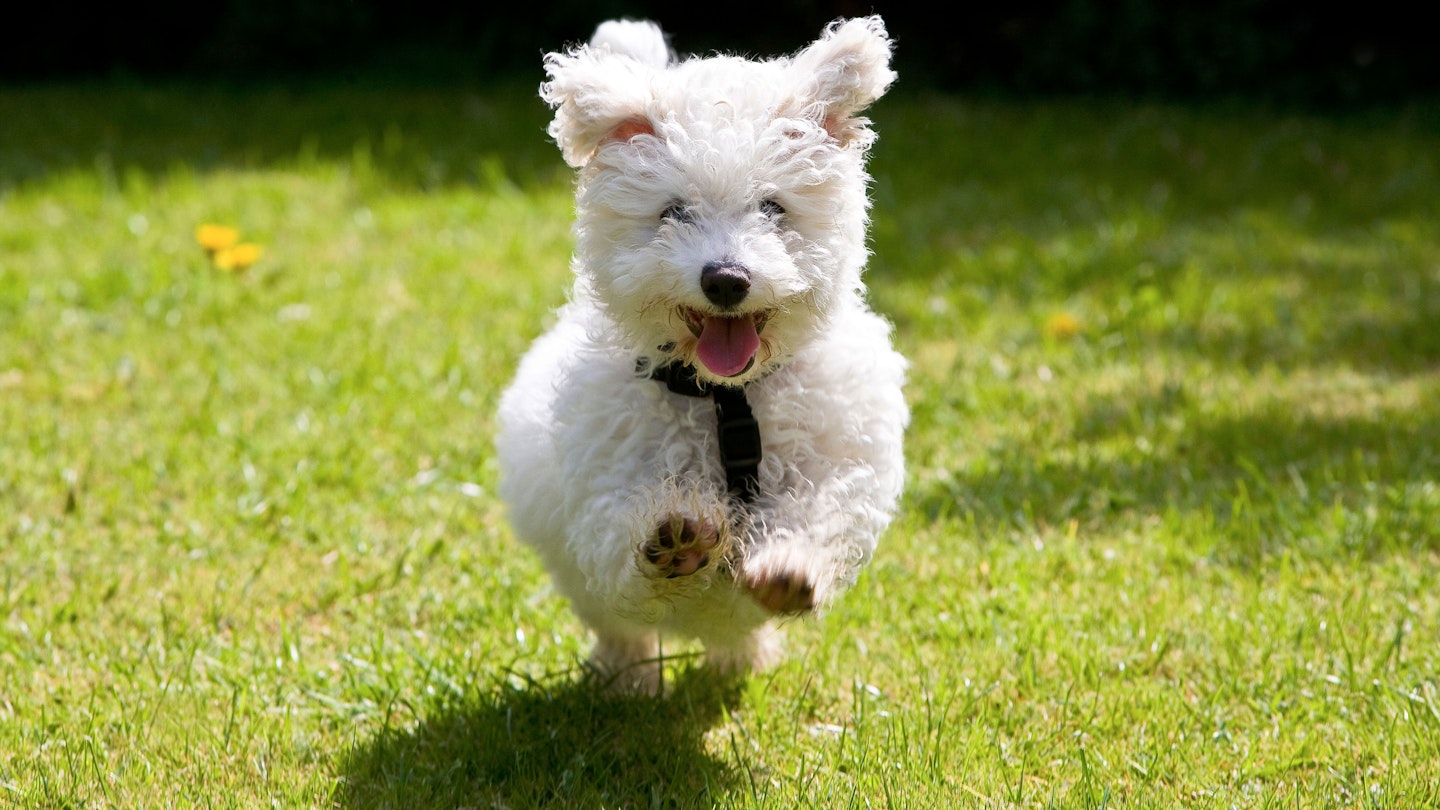After the arrival of those first signs of spring, our thoughts turn to warmer weather, blooming flowers and spending more time in our gardens. But despite all of the enjoyment the season brings, there are some hazards to watch out for – particularly when it comes to our beloved pets. To help keep them safe and healthy, we’ve rounded up what to look out for and the best prevention tips for avoiding any unwanted doggie disasters or cat-astophies.
Throw balls – not sticks!
Despite the association, dogs and sticks are not a good idea. Sticks often have the potential to cause severe injuries in dogs’ mouths and throats. And in some cases – even choking! If your dog likes to chew and chase, opt for a ball, frisbee, or other toys from reputable pet brands, instead.
Give daily grooms
Even if your pet has a short coat, you should still aim to brush their coat once a day in the spring to help prevent matted fur and help you keep an eye out for pests and parasites, whose numbers typically increase at this time of year.
It’s also a good idea to apply veterinarian-approved flea treatments and tick preventive solutions to ward them off and keep any tick-borne diseases at bay.
Exercise gradually
If your pooch has been less active during the winter, avoid taking them on long walks they're not used to straight away. It’s important to let them build up to more exercise gradually – this might involve adding an extra five minutes onto walks in the first week and doubling it in the following week. By doing it this way, you’ll help them to develop more muscle and better cardiovascular health and reduce their risk of injury.

Spot springtime allergies
With higher pollen counts, spring is a peak season for allergies. And like us, some animals – particularly dogs – can be sensitive to this. However, unlike humans, these allergies often present themselves as skin problems. Always keep pets away from new plants you’ve introduced into the garden – especially the toxic variety like including rhododendron and azaleas. Should you notice your pets chewing or scratching more than usual, do seek some veterinary advice.
Keep them safe
Warmer weather might mean longer walks for dogs and further exploration for cats. If you haven’t already, make sure that your pet has a microchip for identification (it's a legal requirement for dogs) should they wander off and get lost. It’s also a good idea to get them a tag for their collar with your home address and mobile number so that a neighbour or member of the public can easily contact you.
Clean with caution
It’s that time of year when we get out the cleaning supplies, dust away the cobwebs and give our home a good seeing to. If you’re planning on doing a spring clean, always opt for eco-friendly cleaning products, where possible, as they’re often non-toxic. Even then, it’s not guaranteed that they won’t harm your pets – so it’s best to keep them in a secure place until you’re finished, and all of the cleaning substances are dry. The same applies if you are doing any gardening or DIY– keep any tools safe from dogs, especially puppies.

Keep treats locked away
Some animals can be great opportunists. All it takes is your back to be turned for a few minutes before they’re tucking into something they shouldn’t be. At this time of year when sweet treats are plentiful, it’s important not to take any chances. Chocolate is seriously toxic to cats and dogs – and should you need to get their stomach pumped, it’ll cost a pretty penny! Other Easter-related items – like fake grass, sweet wrappers and plastic eggs – can also be really hazardous to pets, causing them all manner of gastrointestinal problems if ingested. So, keep these out of reach, too.
Keep them sun-protected
Although springtime sunshine might feel deceivingly mild and harmless to us, leaving your dog in the car should still be avoided, as vehicles can still heat very quickly. Similarly, pets can also get sunburn – and develop skin cancer – too. Should they be partial to basking in the sun, always apply pet-formulated sunscreen to hairless areas, such as the armpits, groin and belly – and areas of the face including the areas, around the lips, ears and eyelids. It may even be worth investing in a cat or dog sun shade for pets that like to spend time in the garden.

Secure the garden
With the warmer weather, your dog may naturally spend more time in the garden, so check your fencing and gates are secure both to prevent your pooch from escaping through a gap and or being stolen. You should never leave a dog to its own devices when outside and should always supervise.
Be lungworm aware
Lungworm is a type of parasitic worm can be contracted by dogs eating slugs and snails or from drinking a water source where a slug or snail has been. Contracting lungworm can cause your pooch all kinds of health problems and, in some cases, can even be fatal. Always bring cat and dog toys back indoors during the evening and regularly clean out any water bowls that are usually left in the garden.
Digital Writer Emily Gilbert has been a journalist since 2016 and has worked across a variety of specialist and lifestyle brands both in print and online. Specialising in product reviews, Emily is the first to know about all the exciting new releases, her favourite being gadgets for the home.
